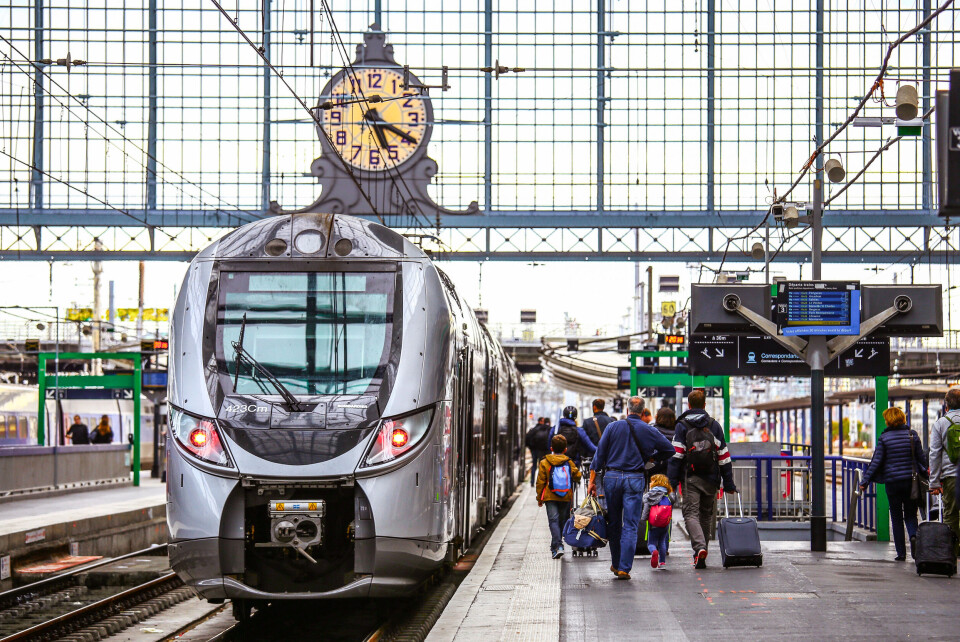-
How many Americans live in Paris - and where else are they choosing in France?
Over a quarter of all US nationals in France live in the capital city
-
Price rises for Netflix in France
The Standard (with ads) and Premium packages are increasing by €24 a year
-
Leclerc supermarkets to sell car fuel at cost price for Easter
The initiative will apply to diesel, petrol, and LPG
Rail strike: Paris and south west trains ‘severely disrupted’ tomorrow
Métro lines will be closed, Ile-de-France trains cancelled and traffic at a standstill across much of Nouvelle-Aquitaine as workers call for pay rises

Rail worker strikes in Ile-de-France and Nouvelle-Aquitaine are set to “severely disrupt” traffic tomorrow (February 18).
RATP employees are calling for pay rises, following a persistent “disagreement” between unions and the company management during annual salary negotiations (NAO).
In Nouvelle-Aquitaine, demands for salary increases are joined by calls for better working conditions.
Ile-de-France
In central Paris, eight métro lines – the 2, 3 bis, 5, 7bis, 8, 10, 11 and 12 – will be closed completely and six lines will only run during peak times.
Lines 3, 4, 6, 7, 9 and 13 will be open between 06:30 and 09:30 and 16:30 to 19:30, with one in two and sometimes only one in four trains running.
There will be no change to the 1 or the 14, but the operator, RATP, advises passengers to avoid travelling if possible due to a “risk of overcrowding.”
[Mouvement Social] ⚠️ Le trafic sera fortement perturbé sur les lignes #RATP ce vendredi 18 février. Nous vous invitons à limiter au maximum vos déplacements, et nous vous présentons nos excuses pour les conditions de transport prévues. Pour connaître le détail des prévisions ⬇️ pic.twitter.com/yMiQvUWpsl
— RATP Group (@RATPgroup) February 16, 2022
On the RER A and B, one in two trains will be running at rush hour and only one in three at off-peak times.
Traffic will also be affected on Ile-de-France buses and trams, where two in every three and one in every three services will be operating respectively, “with variations depending on the area, and some lines potentially being closed.”
RATP has apologised to passengers for any inconvenience caused.
Nouvelle-Aquitaine
The signalmen of the Nouvelle-Aquitaine SNCF Réseau have also been called to strike tomorrow, and severe disruption is expected.
Rail traffic will be “almost normal” until this evening (February 17) and until Saturday morning (February 19).
From 20:30 tonight, no TER trains will be leaving or arriving in Bordeaux, and on Friday, only 25% of services will be running between Sud-Aquitaine and Limousin.
There will be no trains around Poitou-Charentes or the area surrounding Bordeaux.
SNCF has also warned that the “timetable will not enable us to ensure connections with long-distance trains.”
TGV Inoui and Ouigo trains will be disrupted tomorrow morning but running in the afternoon until 20:00.
Traffic will be disrupted on the La Rochelle line and trains will not be stopping at Angoulême or Libourne.
There will be no services running between Nantes and Bordeaux, only one in three between Bordeaux and Marseille, two in three between Hendaye and Toulouse and one return Paris-Cahors train will be cancelled.
If you have already bought tickets for any of these services, you should be contacted directly by the operator with updates about the situation. You can exchange or refund your tickets for free.
What are workers hoping to achieve?
RATP staff are protesting against the operator’s proposed pay rise, which they claim to be 0.4%, but which RATP has insisted reaches 2.7% on average.
The management have also made reference to a profit-sharing bonus which “could be higher than in previous years,” at €1,000 net on average.
The CGT union is asking for a 3% pay rise per year for the next three years, and its call for strike action has been supported by the UNSA, FO, CFE-CGC, Solidaires and La Base.
Further salarial negotiations are expected to take place tomorrow (Friday), the day of the strike.
In Nouvelle-Aquitaine, the striking signalmen are asking for better working conditions, as well as pay rises.
Julien Bournique, who represents Sud-Rail, told AFP that: “2022 has been the ninth year without a universal salary increase,” adding that the network is suffering from a “chronic and significant workforce shortage.”
“They are asking staff to make more effort without giving them professional or financial recognition.”
Related articles
Strikes, jams, new flights, Covid tests: Nine France travel updates
Who will benefit from the pay rises expected in France in 2022?
Marseille-Nice becomes first French TER line to leave SNCF control
























